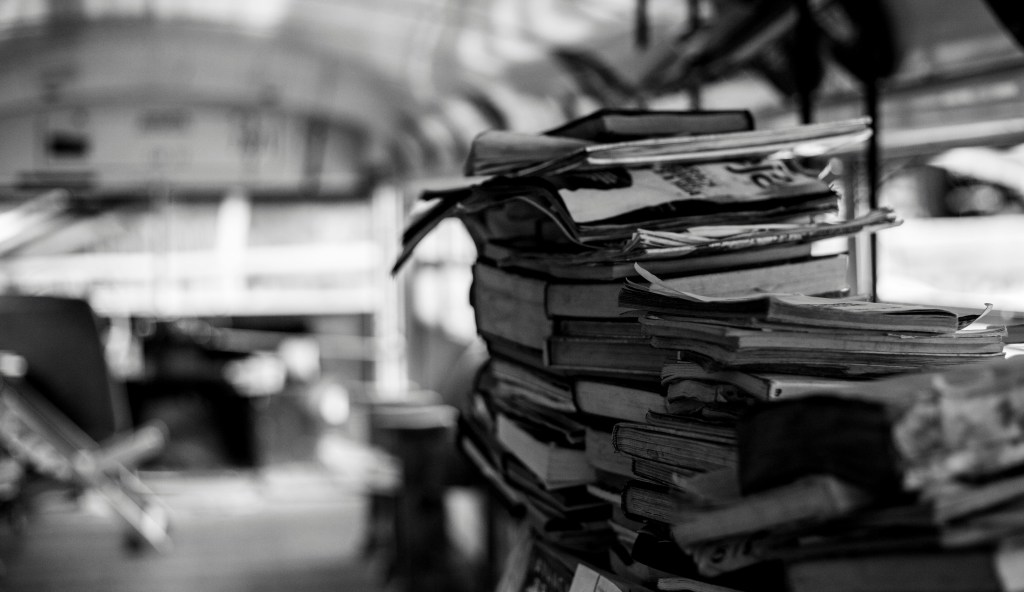
The bookshelf falls with a conclusive thud. Volumes of dictionaries flap to the floor, their spines irreparably dislocated, their yellow pages exposed to greedy, scurrying mice. Billy the lexicographer realises with a tremor of despair that he is trapped. A lifetime acquiring language will end with him suffocating under the weight of words.
He’ll spend his final moments naming things: the marble table, the antique wardrobe, the upholstered dining room chairs. Bodies of plastic baby dolls, a bag of mouldy limbs and hairless, eyeless heads. Mountains of newspaper, rodent insulation. Grandmother’s tarnished silverware. A treasure box of costume jewellery.
An unfamiliar longing: to be free of noun phrases. To unacquire language. Billy’s gaze scurries frantically around the room, replacing objects with object pronouns. This. That. Those. Them. Him. Me.
They. He. I. The objects become subjects. The subjects invite agreeable verbs. The verbs are finite: This too shall pass.
I, too, shall pass, decides Billy. He raises himself up upon mouldy legs, passes a trembling hand over a hairless head and clears a path through his storeroom of hoarded language.
Would you like to know more about this story? Sign up to the Grammar for Dreamers newsletter to get monthly updates on the ideas that inspire my work.